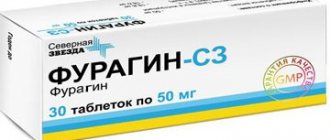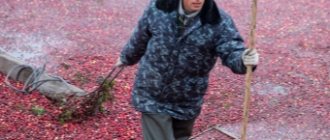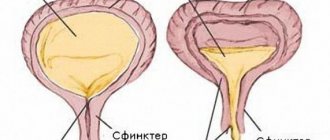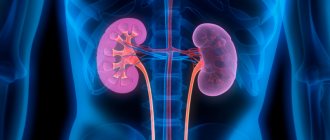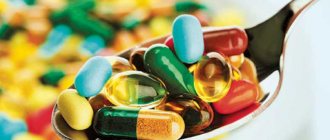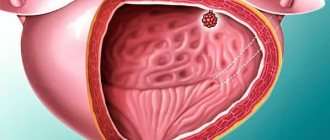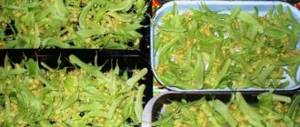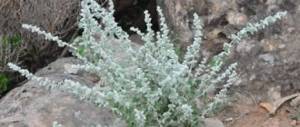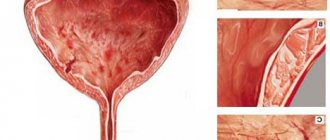Kidneys are one of the most important organs of the human body. Any metabolic failure, deficiency or excess of one or another element can disrupt the natural functioning of the excretory system. To prevent the development of pathologies, it is extremely important to take vitamins for the kidneys. They can be either natural, obtained from vegetables and fruits, or in the form of medicinal supplements.
Harmful and beneficial foods for the adrenal glands
The intake of food leads to increased functioning of the adrenal glands.
The reaction is especially pronounced after lunch with a rise in cortisol levels. The most obvious increase in this hormone in the blood is in response to protein foods. It is known that in obesity, cortisol is also released when eating simple carbohydrates , and with normal body weight, its concentration remains almost unchanged or even decreases. Under the influence of an excess of this hormone (hypercortisolism), fat is deposited in the subcutaneous tissue, mainly in the abdomen and upper torso, and blood sugar rises.
Low-salt diets and an increased proportion of potassium salts in the diet lead to active synthesis of this hormone . Normally, salty foods reduce the flow of the hormone into the blood; as a result, sodium and chlorine are removed from the body, and potassium is retained.
The formation of sex steroid hormones depends on sufficient intake of vitamins and fats from food . With a sharp restriction of calories due to fatty foods, women's menstrual cycle is disrupted, and men's potency weakens.
Regular intake of fatty foods is also important for the physiological functioning of the adrenal glands. With a uniform intake of food, hormones are released in exactly the amount necessary for its absorption and processing into energy. A long break or a sharp reduction in calories causes changes in glucose levels, which is regarded as a stressful state and stimulates the release of excess amounts of cortisol.
Healthy foods, vitamins and microelements for sick organs:
- vitamin E: vegetable oil, wheat germ, nuts, sunflower seeds;
- pantothenic acid (vitamin B 5): egg yolk, bran, peas, avocado, cheese;
- omega-3, -6, -9-unsaturated fatty acids: fish oil, seafood, broccoli, chia and flax seeds, walnuts;
- potassium, sodium, magnesium, iodine: kelp, sea salt, pink Himalayan salt;
- vitamin C: rose hips, black currants, sweet peppers, kiwi;
- tyrosine: turkey, pumpkin seeds, bananas, legumes, hard cheese.
It is important to minimize or eliminate foods that disrupt hormonal balance:
- canned, smoked food, with dyes, flavorings and flavor enhancers;
- fast food, crackers with spices, chips, instant soups;
- ready-made sauces, juices, nectars;
- sweet soda, alcohol, energy drinks;
- coffee, especially instant coffee;
- margarine, sour cream and cheese products;
- shelf-stable yoghurts with sugar.
Junk food
A diet for hyperplasia involves a high-calorie diet with sufficient salt content, especially in the salt-wasting form of the disease. It is important to ensure fluid intake at the rate of 30 ml per 1 kg of body, and to control the potassium content in the blood. If the concentration of this microelement is excessive, the following should be excluded from the diet:
In the hypertensive form of adrenal hyperplasia, reduce the intake of table salt. Dishes are prepared without adding it, and 3-5 g are handed out for adding salt. Canned food, crackers with salt and chips, salted cheese, feta cheese, and sausages are prohibited.
The most common forms of adrenal glandular epithelial tumor are corticosteroma and aldosteroma . Diet to prevent their progression:
- completely give up sugar and flour products;
- exclude from the diet or limit as much as possible: fatty meat, butter, pork fat, lard, fried foods, mayonnaise and other hot sauces, potatoes, pasta, white bread, canned food, smoked meats, pickles, ham, sweet juices, dates;
- dairy products should be in the diet with low or moderate fat content; cottage cheese and yogurt, prepared independently without added sugar, are useful;
- High calorie foods can be consumed up to 30 g per day: fructose chocolate, seeds, nuts, dried fruits;
- The basis of the diet is vegetables, they are best eaten fresh if they are well tolerated; in case of inflammation of the digestive system, they switch to boiled or baked;
- the source of protein should be fish, chicken or turkey breast, but not fried;
- fats in the diet are reduced, up to 2 tbsp is allowed. l. add vegetable oil to the salad or a tablespoon of sour cream, cream in the first and second courses;
- cereals are used to prepare porridge and soup; a side dish of cereals should be no more than once a day;
- meals are fractional, servings are no more than a glass;
- at high blood pressure, reduce the amount of salt by adding lemon juice and herbs to dishes to add flavor.
The basis of the diet is vegetables, which normalize the functioning of the adrenal glands.
The diet after removal of the adrenal glands (bilateral adrenalectomy) includes limiting simple carbohydrates in the diet, carefully calculating the calorie content of food, and limiting salt. When one adrenal gland is removed, over time the second organ takes over its functions. If the recovery period is favorable, patients do not require a special diet. It is enough for them to maintain a balance between the intake of proteins, fats and carbohydrates.
Often, during adrenalectomy, the remaining adrenal gland is depressed . It is important for such patients to ensure that their diet contains vitamins, proteins, saturated and unsaturated fatty acids, and microelements. The diet includes the following products and dishes:
- vegetable salads with herbs;
- rye bread, dry biscuits;
- soup, borscht, beetroot soup;
- meat, fish (except fried);
- seafood, seaweed;
- all types of cereals and legumes;
- yogurt, fermented baked milk, sour cream, kefir, cream, cottage cheese, cheese;
- boiled vegetables and always raw;
- homemade fruit juice, berry, a mixture of vegetables, fruits and herbs;
- dried fruits, marshmallows, marmalade, honey, nuts;
- green tea, rosehip infusion, chicory;
- butter and vegetable oil for adding to dishes.
Fruit with yogurt and oatmeal with butter, to which you add a ripe banana, brown rice or lasagna with vegetables - a wonderful lunch for sick people. The following
are prohibited:
- fatty meat, duck, sauces;
- beef, lamb fat, margarine;
- hot spices, sausages, canned food, smoked foods;
- snacks, chips, fast food.
Read more in our article about foods for the adrenal glands.
Cooking tips
The best ways to prepare a healthy dish are boiling, stewing, and baking in foil. It is better to save recipes with fried meat and vegetables for a weekend or holiday, or use a little oil.
Despite the fact that modern stores offer a huge range of products, not all of them are healthy, and in order not to overload the body, you need to choose your food carefully. In short, for kidney health you need to give preference to boiled and stewed foods, fresh sweet vegetables and fruits, and also avoid artificial foods - sausages and smoked meats, chips, soda. Natural food, prepared without excess oil and salt, will be the best diet option. In addition, after limiting salt, the taste of many foods returns.
The above rules will help preserve healthy kidneys and improve the condition of those who are already at the stage of treatment. In addition, it is necessary to avoid infections and hypothermia.
Kidneys are small organs in the lower abdomen that play an important role in the health of the human body. Some foods may improve kidney performance, while others may impair kidney function and cause damage.
The kidneys filter waste from the blood and remove it from the body through urine. They are also responsible for balancing fluid and electrolyte levels.
The kidneys perform these tasks without outside help. Some medical conditions, such as diabetes and high blood pressure, can affect their ability to function.
Ultimately, kidney damage can lead to chronic kidney disease (CKD). As the authors of a 2016 scientific paper noted, diet is the most significant risk factor for death and disability associated with CKD, making dietary changes a key part of treatment.
Following a kidney-healthy eating plan can help your kidneys function properly and prevent damage to these organs. However, while some foods tend to help support kidney health, not all are suitable for people with kidney disease.
Water is the most important drink for the body. Cells use water to transport toxins into the bloodstream.
The kidneys then use the water to filter out these toxins and create urine, which removes them from the body.
A person can maintain these functions by drinking water whenever he is thirsty.
The effect of nutrition on the adrenal glands
The intake of food leads to increased functioning of the adrenal glands. The reaction of the afternoon rise in cortisol levels is especially pronounced. The most obvious increase in this hormone in the blood is in response to protein foods.
It is also known that in obesity, cortisol is also released when simple carbohydrates (sugar, honey, jam, sweets) are consumed, and with normal body weight its concentration remains almost unchanged or even decreases. Under the influence of an excess of this hormone (with hypercortisolism), fat is deposited in the subcutaneous tissue, mainly in the abdomen and upper torso, the breakdown of proteins accelerates, and blood sugar rises.
Aldosterone production is largely influenced by the sodium, chloride and potassium content of food. Low-salt diets and an increased proportion of potassium salts in the diet lead to active synthesis of this hormone. Normally, salty foods reduce the flow of the hormone into the blood; as a result, sodium and chlorine are removed from the body, and potassium is retained.
For the physiological functioning of the adrenal glands, not only the composition of food is important, but also the regularity of its intake. With a uniform intake of food, hormones are released in exactly the amount necessary for its absorption and processing into energy.
A long break or a sharp reduction in calories below the limit level causes changes in glucose levels, which is regarded as a stressful state and stimulates the release of excess amounts of cortisol.
And here is more information about chronic adrenal insufficiency.
Healthy foods for sick organs
The synthesis of hormones of the cortical and medulla of the adrenal glands occurs in the presence of the following components of the diet:
- vitamin E: vegetable oil, wheat germ, nuts, sunflower seeds;
- pantothenic acid (vitamin B 5): egg yolk, bran, peas, avocado, cheese;
- omega-3, -6, -9-unsaturated fatty acids: fish oil, seafood, broccoli, chia and flax seeds, walnuts;
- potassium, sodium, magnesium, iodine: kelp, sea salt, pink Himalayan salt;
- vitamin C: rose hips, black currants, sweet peppers, kiwi;
- tyrosine: turkey, pumpkin seeds, bananas, legumes, hard cheese.
Potassium in foods
It is important not only to provide the body with healthy foods, but also to minimize or eliminate those that disrupt hormonal balance:
- canned, smoked, industrially processed food with dyes, flavors and flavor enhancers;
- fast food, crackers with spices, chips, instant soups;
- ready-made sauces, juices, nectars;
- sweet soda, alcohol, energy drinks;
- coffee, especially instant coffee;
- margarine, sour cream and cheese products;
- shelf-stable yoghurts with sugar.
Junk food is the cause of many diseases
Berries for the kidneys
Berries are certainly considered beneficial foods for the kidneys, and many of them, especially blueberries, currants, raspberries, rose hips and cranberries.
Rosehip preparations are used even for severe kidney diseases, and protect a healthy organ from inflammation and infections.
But the champion among berries for the kidneys is cranberry, rich in antioxidants: it gently removes toxins, and pathogens are very afraid of it. It is no coincidence that cranberries are recommended first for cystitis. Healing fruit drink: 300 g of berries per 1 liter of water; wash, pour boiling water over it, bring to a boil in warm water, let cool, add honey to taste, leave for 6 hours in a cool place. Drink 1-2 glasses a day.
Diet for adrenal glands
For some diseases, in addition to general recommendations, additional dietary changes are required.
For hyperplasia
A high-calorie diet with sufficient salt content is recommended, especially in the salt-wasting form of the disease. It is important to ensure fluid intake at the rate of 30 ml per 1 kg of body, and to control the potassium content in the blood. If the concentration of this microelement is excessive, the following should be excluded from the diet:
- dried apricots,
- legumes,
- peanut,
- pistachios,
- baked potato,
- cocoa.
Chips, crackers and snacks are prohibited.
In case of hypertensive form of adrenal hyperplasia, reduce the intake of table salt. Dishes are prepared without adding it, and 3-5 g (depending on pressure readings) are handed out for adding salt. Canned food, crackers with salt and chips, salted cheese, feta cheese, and sausages are prohibited.
For adenoma, tumor
The most common forms of adrenal glandular epithelial tumors are corticosteroma and aldosteroma. With excessive cortisol production, patients experience obesity, high blood pressure, secondary diabetes, bone destruction, and ulcerative lesions of the stomach and intestines. Therefore, the basic principles of therapeutic nutrition should prevent the progression of these conditions as much as possible.
For this it is recommended:
- completely give up sugar and flour products;
- exclude from the diet or limit as much as possible: fatty meat, butter, pork fat, lard, fried foods, mayonnaise and other hot sauces, potatoes, pasta, white bread, canned food, smoked foods, pickles, ham, sweet juices, dates;
Cracklings
- dairy products should be in the diet with low or moderate fat content; cottage cheese and yogurt, prepared independently without added sugar, are useful;
- restrictions apply to high-calorie foods, they can be consumed up to 30 g per day: fructose chocolate, seeds, nuts, dried fruits;
- The basis of the diet is vegetables; they are best eaten fresh if tolerated well. In case of inflammation of the digestive system, they switch to boiled or baked;
- The source of protein should be fish, chicken or turkey breast. You can use them to prepare steamed cutlets or meatballs, boil and bake with herbs or vegetables;
- fats in the diet are reduced; it is allowed to add up to 2 tablespoons of vegetable oil to the salad or a tablespoon of sour cream, cream in the first and second courses;
- cereals are used to prepare porridge and soup. A side dish of cereals should be on the menu no more than once a day;
- meals are fractional, servings are no more than a glass;
- at high blood pressure, reduce the amount of salt by adding lemon juice and herbs to dishes to add flavor.
Kidney stone disease
What is kidney stone disease? If there are small stones and oxalate sand in the kidneys, they may not bother a person for a long time at all, and they will be found out about them when examining other organs on an ultrasound. But when the stones are already of a decent size, and even move or come out, they cause severe pain and can cause injury to tissues.
Large kidney stones are removed surgically. And small stones can be crushed. Folk remedies can help loosen small stones into sand and get it all away. At the same time, reduce pain. Well, if there is no trust in traditional methods, and there is no time to go to the doctor, but you have the funds to buy effective dietary supplements, then this treatment option is not bad either.
To dissolve small kidney stones, you can regularly prepare bean broth. Cut a kilogram of washed green beans and place in an enamel pan. Pour one liter of water and put on fire. After it boils, cook for fifteen minutes. Leave until it cools down. Take at least a glass, three times a day.
1. To relieve edema resulting from impaired renal function, kidney tea (kidney collection) is used, and for the treatment of infectious and inflammatory diseases of the urinary tract and nephrourolithiasis, the above-mentioned “Phytolysin” is used.
2. To loosen small stones and remove oxalate sand, and also as an antiseptic kidney remedy, many experts recommend the same Indonesian dark green capsules, which were also mentioned above.
Diet after adrenal removal
If a bilateral adrenalectomy was performed, hormone replacement therapy is prescribed immediately after the operation. The main risks of its implementation coincide with the hypercortisolism syndrome in adenoma. Therefore, patients are advised to limit simple carbohydrates in their diet, carefully calculate the caloric content of food, and monitor their salt intake.
When one adrenal gland is removed, over time the second organ takes over its functions. If the recovery period is favorable, patients do not require special diets. It is enough for them to maintain a balance between the intake of proteins, fats and carbohydrates - 20%, 30% and 50%, respectively.
Often, during adrenalectomy, the remaining adrenal gland is in a depressed state, since the pituitary gland produces less corticotropin than is required. It is important for such patients to ensure that their diet contains vitamins, complete proteins, saturated and unsaturated fatty acids, and microelements. To build a diet, the following products and dishes are recommended:
- vegetable salads with herbs;
- rye bread, dry biscuits;
- soup, borscht, beetroot soup;
- meat, fish (except fried);
- seafood, seaweed;
- all types of cereals and legumes;
- yogurt, fermented baked milk, sour cream, kefir, cream, cottage cheese, cheese;
- boiled vegetables and always raw;
- homemade fruit juice, berry, a mixture of vegetables, fruits and herbs;
- dried fruits, marshmallows, marmalade, honey, nuts;
- green tea, rosehip infusion, chicory;
- butter and vegetable oil for adding to dishes.
Fish and seaweed
The following are prohibited:
- fatty meat, duck, sauces;
- beef, lamb fat, margarine;
- hot spices, sausages, canned food, smoked foods;
- snacks, chips, fast food.
And here is more information about the operation of pheochromocytoma.
Foods for the adrenal glands should stimulate the formation of hormones in the required quantities. To do this, they are selected based on the content of vitamins, omega acids, and tyrosine. With cortical hyperplasia, it is important to control the level of potassium and sodium in the diet.
In the case of a tumor, the diet is designed to prevent the progression of obesity, hypertension, osteoporosis, and peptic ulcers. After removal of the adrenal gland, a balanced diet is recommended to restore hormonal function.
What foods should you avoid if you have an overactive bladder?
Reducing fluid intake is the first thing that comes to mind when it comes to controlling an overactive bladder. Yes, but if you drink too little (less than eight cups a day), the urine becomes concentrated, which can further irritate your bladder. Therefore, what you drink and eat is equally important.
10 Foods to Avoid if You Have an Overactive Bladder
Citrus fruits irritate the bladder. Pineapple is not a citrus fruit, but it is also bad for you because it is very sour. Also avoid citrus fruits in juice form. Replace with bananas, apples, pears and berries.
Avoid: Chocolate
Chocolate contains caffeine, a substance that irritates the bladder. Hot chocolate is especially harmful because it is in liquid form.
Dark chocolate - above 70% cocoa - can sometimes be eaten in very small quantities.
Avoid: Coffee and black tea – even decaffeinated
Most people with an overactive bladder know that they need to avoid coffee. It is a diuretic that makes you urinate more often, and it contains caffeine, which stimulates the bladder. “Surprise”: even decaffeinated coffee has this effect.
Drink herbal tea that does not contain caffeine.
Avoid: Hot sauce, chili pepper, wasabi
Among the many physical effects that super-spicy foods have on the body is the tendency to irritate the lining of the bladder.
Choose chilled versions of your favorite dishes, with herbs and garlic.
Avoid: Sugar and honey
Although it is difficult to completely eliminate sweets, it is worth cutting them down as sugar stimulates the bladder. Even artificial sweeteners (such as aspartame) irritate some people.
Try stevia, a natural sweetener that is 100 times sweeter than sugar.
Avoid: Tomato products
Tomatoes are sour, so they irritate the bladder. The effect varies from person to person, but if you are vulnerable, try avoiding sauces, pastes, juice, spaghetti sauces, and salsa.
Replace with mushrooms, other vegetables, white sauce, beans and other ingredients.
Avoid: Alcohol
Whether in the form of wine, beer, champagne or spirits, alcohol interferes with your body's ability to send signals to your brain that tell you when to go to the bathroom. It also dries out the body, forcing you to drink more.
Drink cranberry juice.
Avoid: Milk and cheese
Different dairy products tend to affect people differently. For some, all dairy products cause bladder activity. Others are only concerned about very fatty and creamy dairy products such as cheese, sour cream or aged cheeses.
Experiment carefully to see which foods you tolerate best.
Avoid: Energy drinks
You might think that these drinks will make you stronger and last longer - but their source of "energy" is usually caffeine, which irritates the bladder. Read labels carefully.
Exercise and sleep will increase your energy naturally.
Avoid: Carbonated drinks
Quenching your thirst with carbonated drinks is harmful, especially if you have an overactive bladder. The trigger is carbon dioxide bubbles, the effect of which is enhanced if the drink contains caffeine, such as cola.
Source: https://udoktora.net/kakih-produktov-sleduet-izbegat-pri-giperaktivnom-mochevom-puzyire-73155/
Useful video
Watch the video on how to bake gluten-free bread at home:
Chronic adrenal insufficiency occurs with a long course of the disease, damage by viruses and fungi. Primary occurs in children and adults, there are secondary and tertiary. Symptoms are initially hidden. Complications are severe without treatment. Comprehensive diagnostics
A diet for hypothyroidism is mandatory. You can immediately develop a menu for the week, especially if the disease has clear manifestations - autoimmune, subclinical, or requires a gluten-free diet. How to reduce obesity in women and men due to the thyroid gland?
The hormone adrenaline is produced primarily by the adrenal glands. It is considered to be a stress hormone, but its functions are much broader. What other gland produces adrenaline? How does the action change if an excess or deficiency is detected?
A diet is prescribed for osteoporosis, both for existing osteoporosis and for its prevention. In this case, the menu for a sick spine includes vitamins and minerals, products containing calcium. Special nutrition for women during menopause. A calcium diet has been developed for them.
Norepinephrine, a hormone produced by the adrenal glands, plays an important role in the body. The main functions are similar to adrenaline, they complement each other. This is a hormone of stress and rage. What to do if elevated?
source
Cranberry
Cranberry is an antiseptic with a broad spectrum of action, effective against most gram-positive and some gram-negative microorganisms.
An additional plus is the presence of flavonoids that prevent the development of cystitis and urethritis. That is why cranberry juice is recommended for all nephrological patients.
Research conducted in South Africa demonstrates that drinking cranberry juice reduces urinary overload with calcium oxalate and reduces urinary oxalate excretion. Scientists recommend including the plant in the list of national recommendations for the treatment of urolithiasis.
Separately, the scientific article from 2010 should be cancelled. According to it, beak berries contain many phytonutrients that block the adhesion of bacterial particles to the mucous membrane of the tubules of the kidneys and bladder, thereby preventing the occurrence of bacteriosis.
Eating cranberries helps prevent urolithiasis, cystitis, urethritis and bacteriosis.
Top 9 Adrenal Health Foods, Backed by Science
The adrenal glands are vital organs that provide the synthesis of a large number of hormones that regulate all metabolic processes in the body.
Biologically active substances secreted by the adrenal glands are also responsible for an adequate response to stressful stimuli and the functioning of the immune system.
Unfortunately, the functioning of the adrenal glands can be impaired even in the absence of significant diseases and anatomical defects. One such pathology is adrenal fatigue.
Official medicine denies the existence of this condition. Due to the lack of experience in clinical treatment, drug therapy for this condition is unacceptable.
However, research into adrenal fatigue continues, with many men and women reporting symptoms of the disease.
Therefore, it is recommended to adjust the diet to saturate the body with beneficial nutrients (vitamins, macro- and microelements). It has been proven that a proper diet and a healthy lifestyle help alleviate or completely eliminate most of the symptoms described.
Key points in disease prevention
Prevention of urinary tract diseases is an important point in maintaining human health and prolonging a full life. Simple precautions can be used to prevent kidney ailments, by following which each of us can protect ourselves from problems with the urinary organs.
The main measures to prevent kidney diseases include:
- strengthening the immune system, preventing and timely treatment of viral infections, as well as eliminating factors that contribute to excessive stress on the immune system;
- treatment of diseases of the bladder and ureters of bacterial origin, which can spread along the ascending tract and affect the renal parenchyma;
- elimination of manifestations of vitamin deficiency;
- prevention of hypothermia and overwork of the body;
- nutritious diet with limited salt intake;
- organization of adequate drinking regime;
- avoiding stressful situations and nervous exhaustion of the body.
It should be remembered that it is always easier to prevent any disease than to cure it completely and without consequences for the body.
What is “adrenal fatigue” and how does it manifest?
Adrenal fatigue is a complex of symptoms in the body that are caused by decreased adrenal function in the absence of organic disorders.
In most cases, the main cause of deviation is prolonged exposure to stress factors, less often the cause is:
- long-term somatic diseases;
- infectious pathologies;
- malignant cell proliferation.
In all the described conditions, a colossal amount of adrenaline, norepinephrine, and cortisol is released into the blood. As a result, the adrenal glands slow down their work (since the body has enough hormones), which is manifested by symptoms of depletion of these organs.
With adrenal fatigue, the production of cortisol, an important hormone that is responsible for vascular tone and maintaining blood pressure, as well as the functioning of the central nervous system, is significantly reduced.
Cortisol deficiency may cause:
- chronic fatigue (rapid physical and mental fatigue);
- decreased brain functions (memory, attention, thinking);
- loss of appetite;
- worsening mood;
- dyspeptic disorders (nausea, less often - vomiting, pain in the epigastric and periumbilical region);
- a decrease in blood pressure and the appearance of signs of hypoxia of organs and tissues (weakness, episodes of dizziness and flashes of spots before the eyes, increased sweating, etc.);
- weight loss;
- transient pain in skeletal muscles and joints;
- hyperpigmentation (pigment spots are most often found on the face and the front surface of the body, less often on the skin of the distal extremities).
It should be noted that none of the scientific studies could prove that stress can affect the functioning of the adrenal glands (cause functional or organic disorders). This condition circulates only in folk medicine and in some other alternative directions.
What should you exclude from your diet?
Diet involves not only adding healthy foods, but also eliminating harmful ones.
It is recommended to limit the consumption of any drinks and foods high in sugar and polyunsaturated fats.
You should not eat the following foods:
- bakery products;
- pure sugar;
- alcoholic drinks;
- coffee and caffeinated products;
- soda;
- food fried in vegetable oil;
- any fast food products (fast food);
- dishes containing a large amount of preservatives, dyes, flavor enhancers (sweets, cakes, bright carbonated drinks, etc.).
Active lifestyle
Physical activity is extremely important for the kidneys.
Your daily gymnastics routine should include exercises that improve blood circulation in your organs. It is useful to swim, run, dance. Ordinary walks, cycling, and skiing have a beneficial effect.
Any dynamic sport will be beneficial. During exercise, the danger of injury is a warning; they should be avoided as much as possible in contact sports.
A sedentary lifestyle leads to loss of flexibility of the spine and deterioration of blood circulation, which negatively affects the functioning of the organ.
It is recommended to visit the steam room or sauna at least once a week. Temperature contrast improves metabolism. With sweat, salts, waste, toxins and other breakdown products are eliminated, and the load on the kidneys is reduced.
General nutrition rules
- Balance your daily menu. When consuming products, it is extremely important to observe the qualitative and quantitative composition. It is necessary to consume more protein substances (plant and animal origin), polyunsaturated fats (including omega-6 and omega-3) and hard-to-digest carbohydrates.
- Drink more water. Adequate hydration of the body is important. Daily consumption of pure liquid should be in the range of 1.5 to 2.0 liters.
- Be sure to include fruits and vegetables in your diet , which provide the body with all the vitamins necessary for the adrenal glands (C, B5, B6), macro- and microelements (magnesium).
- Eat some healthy foods. First of all, you need to add meat without fat, tendons and veins to your diet; seafood (cod), eggs, legumes, nuts, whole grains, dairy products, and sea salt.
Fortified drinks
The recommended amount of fluid to drink per day - this, of course, depends on the characteristics of the body. The norm is 1.5-2.5 liters of fluid per day. However, drinking mineral water is not recommended. The drinking regime should also be therapeutic in nature and carried out under the supervision of a doctor.
Preference should be given to sour fortified drinks and fruit drinks made from cranberries or lemon. Such cocktails are excellent at getting rid of bacterial infections, if any. The main thing is not to overdo it, otherwise it will have a bad effect on the organs. You need to give up coffee, it can increase blood pressure.
Freshly squeezed juices from parsley, carrots, and celery are considered beneficial. A drink made from pumpkin is also effective; it is rich in a large number of useful vitamins. In addition, it has diuretic properties.
Plum and apple juice are also considered diuretics, so it is advisable to drink at least one glass of “vitamins” per day.
Mode and sample menu (Table)
To regulate the excretion of cortisol during the day, you should follow a special diet that involves eating food at certain intervals:
- 07:00-08:00 – breakfast.
- 09:00 – snack, which must include vegetables.
- 11:00-12:00 – lunch (including meat products);
- 14:00-15:00 – afternoon tea. It is very important to deliver nutrients to the body during this period, since around 4 pm there is a physiological decrease in the release of cortisol into the blood.
- 17:00-18:00 – dinner. Light food (not high in fat) is ideal.
- 1 hour before going to bed - a light snack (minimum amount of carbohydrates, maximum protein components).
In total per day you need to consume:
| Share of daily ration | Product type | Characteristics of dishes |
| 30% | Vegetables | In equal volumes – steamed and pure |
| 10% | Fruits | Any types |
| 20% | Meat | Any lean meats, poultry and fish |
| 30% | Whole grains | Brown risk, buckwheat, corn, amaranth, oatmeal |
| 10% | Nuts and legumes | Any types |
Diet for adrenal disease
The adrenal glands are small endocrine glands located above the kidneys. They perform vital functions for the body, namely, they produce the hormones adrenaline, cortisol and aldosterone. Without them, a person cannot exist. The endocrine glands suffer from constant stress and lack of sleep. It is also harmful for the kidneys and adrenal glands to consume certain foods. What to do to help the body cope with stress? Doctors say that a diet for the adrenal glands will help.
Blueberry
Blueberries improve not only the functioning of the visual system, but also the kidneys. They help dissolve and remove sand and small stones (mainly oxalates) from the kidneys, thereby preventing the development of kidney stones.
Scientists have proven that the anthocyanins (antioxidants) contained in blueberries protect the kidney tubules from destructive and atrophic changes that can be observed during hypertension and diabetes.
An additional advantage of blueberries is their extremely low content of sodium, potassium and phosphorus.
Blueberries retain their entire range of medicinal properties even after heat treatment.
Blueberries are one of the main products that prevent the formation of stones in the pyelocaliceal structure of the kidneys and the underlying parts of the urinary system.
Consequences of adrenal dysfunction
When stressed, the adrenal glands begin to actively produce the hormone cortisol. If its level is elevated for a long time, then some functions in the body are disrupted. Immunity decreases, digestion worsens, sleep is disturbed, other hormones are also produced worse, and the risk of developing hypertension, diabetes, obesity and endocrine system diseases increases.
With prolonged heavy loads on the endocrine glands, the production of cortisol soon decreases and the level of adrenaline in the blood increases. A person becomes angry, aggressive and irritable, libido decreases, and a loss of strength and exhaustion is felt. This condition is called adrenal fatigue.
What you need for adrenal health
The adrenal glands are important for the entire body. Their work affects the general well-being, mood, appearance of a person and the condition of many internal organs. Symptoms of adrenal dysfunction:
- irritability, tension, poor sleep or insomnia;
- the emergence of feelings such as fear, panic, anxiety, rage;
- decreased concentration;
- desire to eat sweets;
- the waist increases in volume;
- increased blood glucose levels;
- low blood pressure;
- problems with bones and skin.
The problem of adrenal fatigue must be taken seriously. Dysfunction of the glands can cause the development of certain diseases, for example, Addison's disease, in which pathological changes occur in the adrenal glands.
Adrenaline fatigue, like other problems with the adrenal glands, is treated with a special diet and improving blood circulation through exercise. It is also very important to protect the patient from stressful situations and give the nervous system a rest.
What foods are good for the adrenal glands?
For normal functioning of the endocrine system and normalization of hormonal levels after removal of the adrenal gland and with adenoma, it is very important to maintain proper nutrition. For the normal production of hormones, the glands need vitamins A, C, E, B, proteins, amino acids, magnesium, calcium, zinc, manganese, selenium, iodine.
Patients with adrenal diseases should include the following foods in their diet:
| Product | Beneficial features |
| Sprouted wheat grains | Contains vitamins E and group B |
| Fatty fish (mackerel, salmon, sardine, herring) | They are sources of Omega-3 polyunsaturated fatty acids |
| Liver, kidneys, raw egg yolk, radish and radish tops, peanuts, bran | They supply the body with vitamin B5, which normalizes the functioning of the adrenal glands. |
| Carrots with vegetable oil | Retinol (vitamin A) contained in carrots is necessary for the cortical layer of the glands, and vitamin E from the oil helps the absorption of retinol |
| Lard, duck, chicken, beef fat | Supplies endocrine glands with energy |
| Eggs | Contains proteins, vitamin E, pantothenic acid |
| Unrefined sunflower oil, cereal grains, lettuce, eggs | Supply the body with vitamin E |
| Rosehip decoction, freshly squeezed orange or currant juice | Rich in vitamin C |
| Licorice | Helps relieve tension in the glands |
| Unrefined sea salt | Regulates blood pressure, contains many beneficial minerals |
If you have adrenal dysfunction, drinking freshly squeezed orange juice is very beneficial. You need to drink the same small portions through a straw throughout the day so that vitamin C is gradually supplied to the body
With adrenaline fatigue, cravings for salty foods are often observed. This is due to a decrease in the level of the steroid hormone aldosterone in patients. This hormone regulates mineral metabolism in the body and normalizes blood pressure. Low aldosterone levels lead to a deterioration in water-salt metabolism, so consuming sodium helps restore the balance of salts in the body. It is important not to use table salt, but to choose unprocessed sea salt for cooking.
What to give up
Some foods can harm not only the adrenal glands, but the entire body. If, during adrenaline fatigue, you fight the malaise with the help of sweets, coffee and cola, then the energy received from these products will not stay long in the body. On the contrary, there will be a sharp increase in blood glucose, followed by the release of a large amount of insulin, which is also stressful for the body.
- chips, snacks, salted peanuts, crackers;
- mayonnaise;
- sausages, sausages;
- coffee;
- sugar and sweets;
- vermicelli and other instant dishes;
- alcohol;
- carbonated drinks;
- energy;
- salt.
It is important to eat natural seasonal vegetables, fruits and berries. Strawberries bought at the store in February will not benefit your adrenal glands. You should not eat foods with preservatives, dyes or other harmful additives.
Diet for adrenal diseases
Patients with endocrine diseases should eat healthy foods to treat and maintain health. In order for products to bring maximum benefit to a person, you need to follow a diet. The fact is that during hunger, the adrenal glands begin to intensively secrete cortisol and adrenaline, which lower sugar levels, as a result of which a person loses energy and becomes weaker. Therefore, in order for the body to have enough energy even at night, it is necessary to eat properly.
Cortisol levels fluctuate throughout the day. What is needed to normalize it:
- a hearty breakfast helps normalize sugar levels;
- breakfast should be no later than eight o'clock in the morning;
- after breakfast you need to have a snack an hour later;
- it is also necessary to have a snack between afternoon snack and lunch;
- have a full lunch no later than three o’clock in the afternoon;
- eat most of your food in the first half of the day;
- in the evening, eat light meals in small portions (no later than six o’clock in the evening);
- an hour before bedtime you are allowed to snack on vegetables or fruits;
- if cortisol levels are low and adrenal fatigue is low, moderate physical activity is beneficial;
- If cortisol levels are high, it is recommended to do more intense exercise in the morning or before lunch.
Why is this important for everyone?
The main danger is that problems with this organ lead to diseases of other organs, symptoms such as anemia, high blood pressure, hearing loss, stone formation and a decrease in overall immunity; moreover, kidney diseases do not always manifest themselves acutely, a person begins to feel discomfort and unpleasant symptoms when it is too late to engage in prevention and long-term treatment is necessary.
In the case of kidney diseases, it is difficult to guarantee a favorable prognosis, so it is better to take care of proper nutrition.
